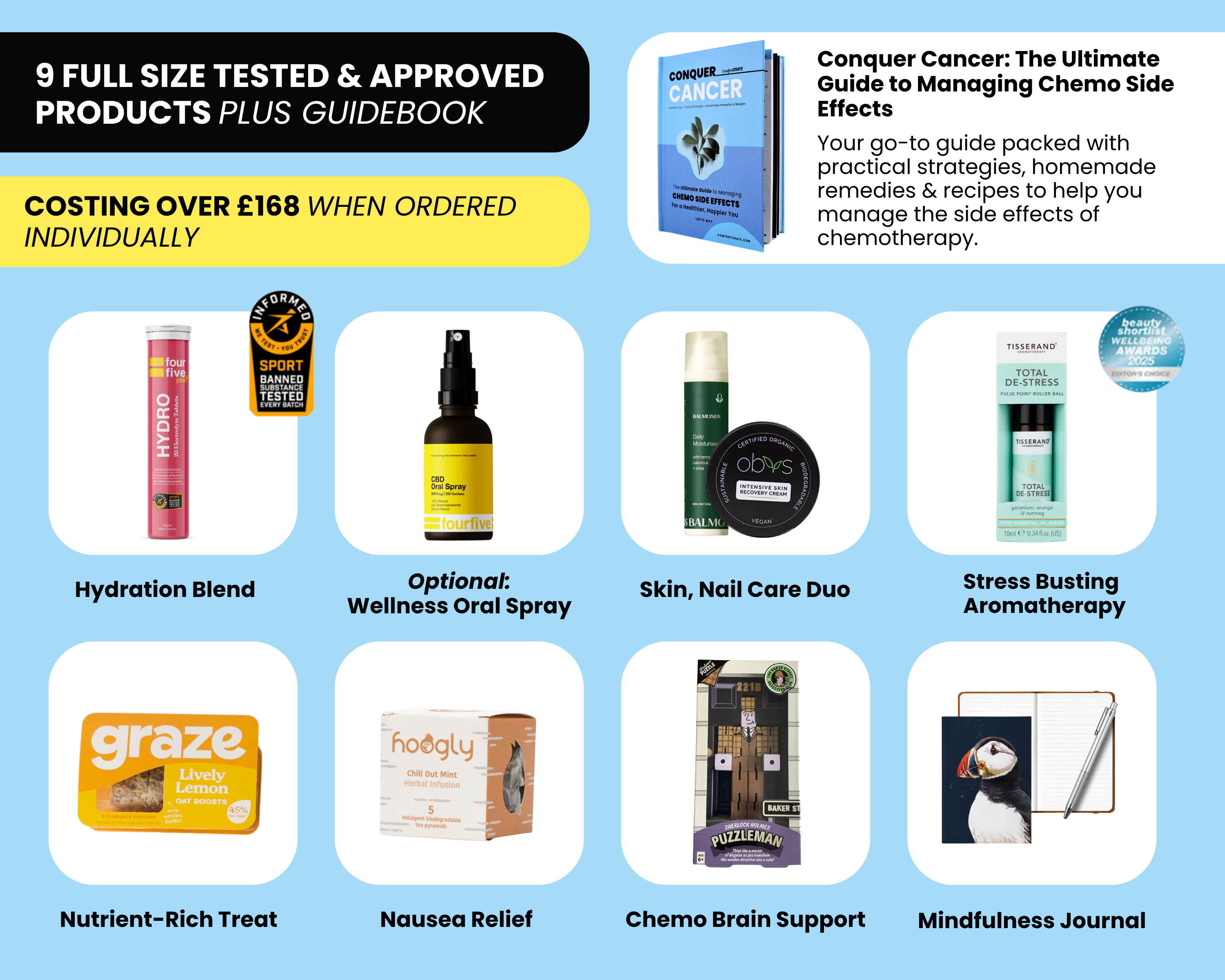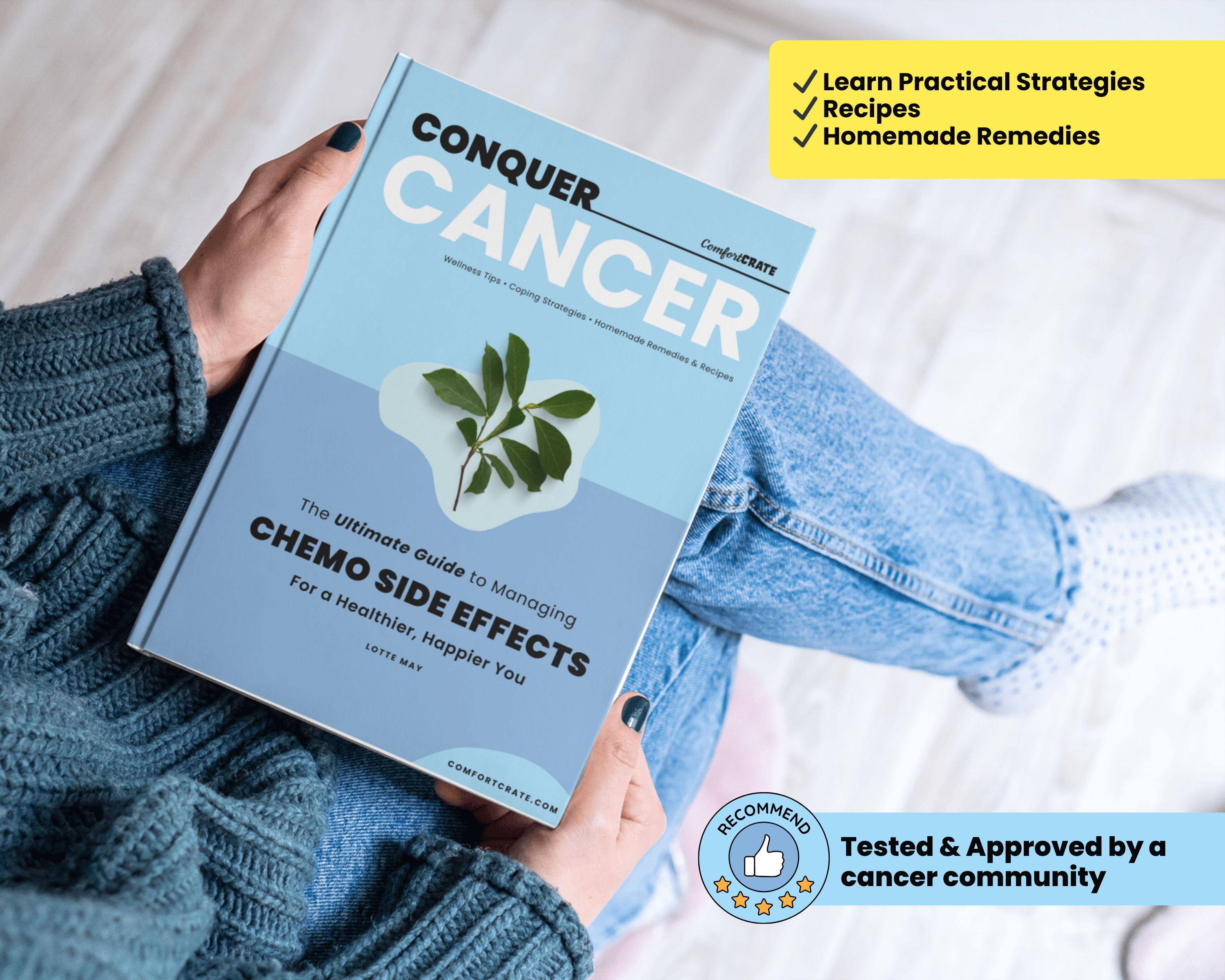
How to Prepare for Chemotherapy
How do I prepare for my first round of chemo?
As you prepare for your chemotherapy treatment, it is natural to experience a mix of emotions, such as anxiety, fear, and uncertainty. The days and weeks leading up to treatment can feel like an emotional rollercoaster, as you grapple with the prospect of undergoing chemotherapy and its potential impact on your daily life. Coping with these intense emotions is a vital aspect of preparing for chemotherapy, as acknowledging your fears and anxiety is the first step towards managing them effectively.
To help ease your anxiety, you should learn the following:
- How to prepare for treatment
- What to expect during treatment
- Learning how to cope and control anxiety and depression
- How will you take care of yourself?
- Practice healthy habits
To help navigate these emotions and feel more prepared for your chemotherapy treatment, it is beneficial to ask your healthcare team key questions about what to expect. Understanding the treatment process, potential outcomes, and side effects can help alleviate some of the stress and uncertainty that may loom over you.
Discuss a treatment plan with your care team with the following questions:
- What will happen during the treatment?
- How long will each session take?
- What are the potential side effects?
- What is the ultimate goal of your treatment?
How to Prepare for Chemo Naturally
In addition to learning about the treatment itself, caring for yourself during this challenging time is equally important. This includes taking care of your physical and mental well-being through healthy habits, self-care practices, and seeking support when needed. Prioritising rest, nutrition, exercise, and relaxation techniques can help you build resilience and cope with chemotherapy's physical and emotional demands.
1. Eat a Balanced Diet
Including a variety of nutrient-dense foods in your diet can strengthen your immune system, support your overall health, and provide vital nutrients essential for your body's well-being.
2. Stay Active
Taking part in exercise triggers the release of endorphins, which boost happiness and relaxation, easing the emotional strain of cancer treatment. This sense of normalcy and control combats loneliness and maintains strength and stamina, facilitating the body's recovery from chemotherapy side effects.
3. Self Care
In many ways, self-care doesn't have to cost a lot nor take up a lot of time, but it will drastically improve your mental well-being. Good care of yourself makes you happier in life, and the happier you are, the better you feel. Resulting in fewer chemo side effects, like chemo brain and nausea, which can be overwhelming when stressed. Learn different de-stress techniques like meditation or yoga.
4. See a Dentist
A top tip that patients are typically not aware of is to schedule an appointment with your dentist if you have not seen one in the last six months. It is recommended that you receive infection treatment prior to undergoing chemotherapy in order to reduce the likelihood of complications and treatment delays.
Practical Concerns of Cancer Treatment
Although cancer is often a cause of frustration and anxiety, many patients experience it more due to practical concerns than cancer itself. If you want things to be easier at home, think about how you will take care of yourself. What might you need help with? This will help you plan. Here are some simple tips you can use to get through the treatment process.
- Creating a Recovery Space: Think about where you might need to recover, like your living room or bedroom. Does it contain everything you need? Provide outlets nearby for phone chargers or medicine drawers.
- Housework: Plan ahead and prioritise things that need doing most and spread tasks out over the week. After treatment, pace yourself and take breaks. Don't overdo it, as side effects can worsen.
- Washing & Dressing: You may feel very tired during treatment so you may find it easier to sit down while you get dressed, iron clothes, or cook. You can also ask your doctor for a shower chair.
- Shopping: Ask your family or a friend to help you shop for food. Make a list before, so you don't waste energy or time. Ask shop staff for help packing and carrying groceries to the car.
- Preparing Meals: Create a space where you sit to prepare food and consider preparing extra dishes or double portions of food and freeze them for when you need them.
Expect Changes in Your Appearance
Chemotherapy treatment can often lead to noticeable changes in your appearance, such as hair loss, weight loss, or skin rashes as side effects. These changes can be challenging to cope with, but being prepared and informed can make the transition easier. It is important to have an open and honest conversation with your doctor about physical changes during treatment. By doing so, you can gain a better understanding of how chemotherapy may impact your appearance and take proactive steps to address any concerns.
For example, if hair loss is expected, your doctor can provide information about when it may occur and offer suggestions on how to manage it. This could involve exploring options such as wearing wigs, scarves, or hats to cover your head. Additionally, your doctor may recommend specific skincare products to treat skin-related side effects, such as dryness, sensitivity, or rashes.
By discussing these potential changes with your healthcare provider, you can better prepare yourself for what to expect during chemotherapy and take the necessary steps to feel more comfortable and confident throughout the treatment process. Embracing these proactive measures can empower you to navigate the challenges of treatment with grace and resilience. Remember that it's okay to seek support from your medical team, loved ones, or support groups to help you through this journey.
Ask your doctor if you have any questions or check out our 'Chemotherapy Safety at Home' blog post for more info.
CLICK HERE for our cancer care package, the only chemo kit that helps you prepare for chemotherapy plus guidebook!











Leave a comment
This site is protected by hCaptcha and the hCaptcha Privacy Policy and Terms of Service apply.